Dental implant durability has revolutionized modern dentistry, offering a durable and effective solution for replacing missing teeth. However, the longevity of these implants is a common concern for both patients and practitioners. Understanding the factors that influence dental implant durability can help ensure a successful and long-lasting outcome. This article explores the key elements that contribute to the durability of dental implants and provides practical tips for maintaining their health.
Factors Affecting Dental Implant Durability
Dental implant durability offers a reliable solution for missing teeth, closely mimicking natural function and appearance. However, their long-term success depends on several key factors. Understanding what influences dental implant durability is crucial for achieving lasting results. This overview highlights the critical elements—from material quality to surgical techniques—that impact how long implants last, helping both dental professionals and patients ensure optimal outcomes.
Material Quality:
Titanium: Known for its biocompatibility and strength, titanium is the most commonly used material for dental implants. Its ability to fuse with the bone (osseointegration) plays a critical role in the implant’s durability.
Zirconia: An alternative to titanium, zirconia offers similar benefits but is often preferred for its aesthetic qualities and metal-free composition.
Implant Design:
The design of the implant, including its shape and surface texture, can impact its stability and integration with the bone. Modern implants feature advanced designs and surface treatments to enhance durability and promote better osseointegration.
Placement and Surgical Technique:
Proper placement is crucial. Implants must be positioned in areas with sufficient bone density and at the correct angle to ensure stability. Advanced imaging and surgical techniques can improve placement accuracy and reduce the risk of complications.
Bone Health:
Adequate bone density and health are essential for the success of dental implants. Factors such as bone loss or poor bone quality can affect the implant’s ability to integrate with the bone. In some cases, bone grafting may be necessary before implant placement.
The Role of Osseointegration
Osseointegration is the process through which the implant fixture integrates with the jawbone. This biological bond is vital for the stability and durability of the implant. Successful osseointegration depends on factors such as:
- Bone Quality: Dense and healthy bone promotes better integration.
- Implant Surface: Textured surfaces enhance bone attachment.
- Healing Time: Adequate time for healing and integration is crucial.
Oral Hygiene and Maintenance
Maintaining excellent oral hygiene is critical for the longevity of dental implants. Poor oral care can lead to peri-implantitis, an infection that can compromise the implant’s stability. To ensure the health of your implants:
- Brush and Floss: Regular brushing and flossing help prevent plaque buildup around the implants.
- Professional Cleanings: Routine visits to your dentist for professional cleanings and check-ups are essential.
- Avoid Smoking: Smoking can impair healing and increase the risk of implant failure.
Lifestyle Factors
Certain lifestyle choices can impact the durability of dental implants:
- Diet: A balanced diet supports overall oral health and bone strength.
- Bruxism: Teeth grinding or clenching can put excessive pressure on implants. Using a night guard can help mitigate this risk.
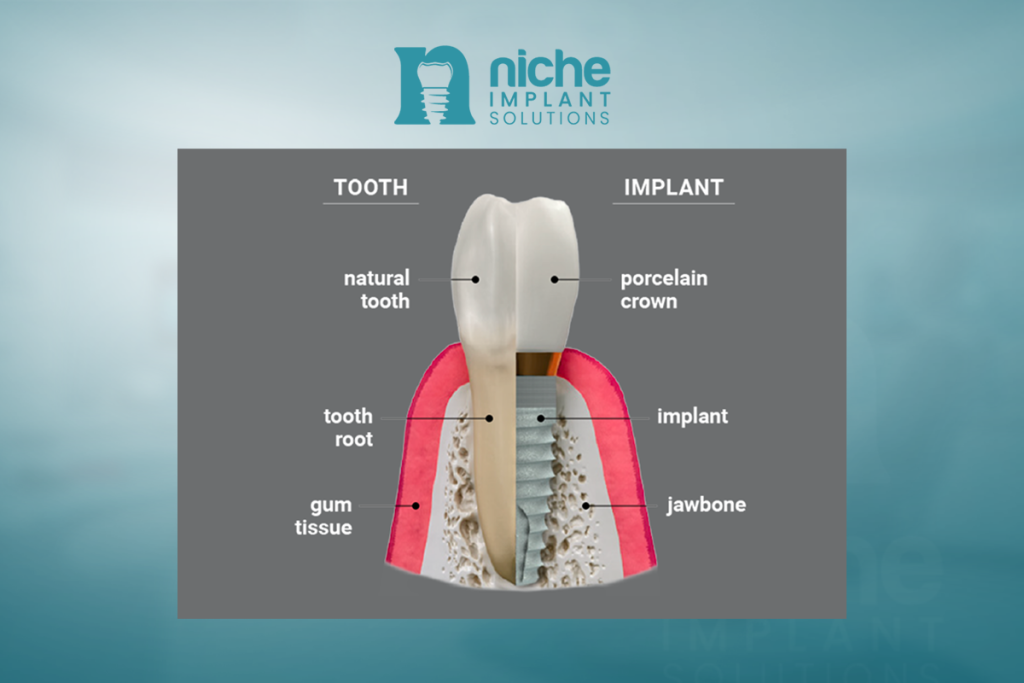
Technological Advancements
Recent innovations in implant technology have enhanced durability and success rates. Advancements such as 3D imaging, computer-assisted surgery, and new implant materials contribute to more predictable outcomes and longer-lasting implants.
Understanding and addressing the factors that influence dental implant durability can significantly impact the success and longevity of your implants. By choosing high-quality materials, ensuring proper placement, maintaining excellent oral hygiene, and making informed lifestyle choices, you can help ensure that your dental implants remain a durable and effective solution for years to come.
If you’re considering dental implant durability or have existing implants, consult with your dental professional to discuss strategies for maintaining their durability and health. With the right care and attention, dental implants can offer a reliable and lasting solution for restoring your smile.
Comparing Dental Implants with Bridges and Dentures: A Focus on Durability and Long-Term Outcomes
When it comes to replacing missing teeth, dental implants, bridges, and dentures are the three most common options. Each method has its advantages and drawbacks, but when considering durability and long-term success, dental implant durability often stands out as a superior choice.
Dental Implants vs. Bridges
Durability and Longevity
- Dental Implants: Dental implants are known for their remarkable durability. Made from materials like titanium or zirconia, they integrate with the jawbone through a process called osseointegration, creating a stable and long-lasting foundation. With proper care, implants can last 20 years or more, and some even last a lifetime.
- Bridges: Dental bridges consist of one or more artificial teeth anchored to adjacent natural teeth or implants. While they can effectively restore missing teeth, bridges generally have a shorter lifespan compared to implants. The average lifespan of a bridge is around 5 to 15 years, depending on the materials used and the patient’s oral hygiene.
Impact on Adjacent Teeth
- Dental implant durability: Implants do not require alteration of adjacent teeth, preserving their natural structure. This means there’s no risk of damaging neighboring teeth, which is beneficial for long-term dental health.
- Bridges: The process of placing a bridge involves reshaping the adjacent teeth to serve as anchors. This can potentially weaken these healthy teeth over time and make them more susceptible to decay or other dental issues.
Dental Implants vs. Dentures
Durability and Longevity
- Dental implant durability: As mentioned, implants are highly durable and can last many years with proper maintenance. They provide a stable and permanent solution, making them a preferred choice for many patients.
- Dentures: Dentures are removable appliances designed to replace multiple missing teeth. While they are a more affordable initial option, dentures generally have a shorter lifespan compared to implants. They may need to be replaced or relined every 5 to 7 years due to changes in the jawbone and natural wear.
Functionality and Comfort
- Dental implant durability: Implants closely mimic natural teeth in terms of function. They allow patients to chew and speak comfortably without worrying about slippage. The integration with the jawbone also means implants provide better stability and function compared to dentures.
- Dentures: Although modern dentures are designed to fit snugly, they can sometimes cause discomfort or require adjustments over time. They may also affect speech and chewing ability compared to the natural feel of implants.
Long-Term Outcomes and Success Rates
Success Rates
- Dental implant durability: The success rate of dental implants is high, with studies showing success rates of 90-95% over a 10 to 15-year period. Factors such as proper placement, good bone quality, and excellent oral hygiene contribute to their high success rates.
- Bridges: Bridges have a good success rate, but it is generally lower than that of implants. Issues such as damage to the supporting teeth or the need for replacement can affect their long-term success.
- Dentures: Dentures have the lowest success rate of the three options in terms of long-term satisfaction and stability. They often require frequent adjustments and replacements, which can affect their overall effectiveness.
Also read: Revolutionising Healthcare: How Biocompatible metals Are Shaping the Future of Medical Implants?
When comparing dental implant durability with bridges and dentures, implants generally offer superior durability, longevity, and functionality. While bridges and dentures can be effective solutions, they often require more frequent replacements or adjustments and may impact adjacent teeth or oral comfort.
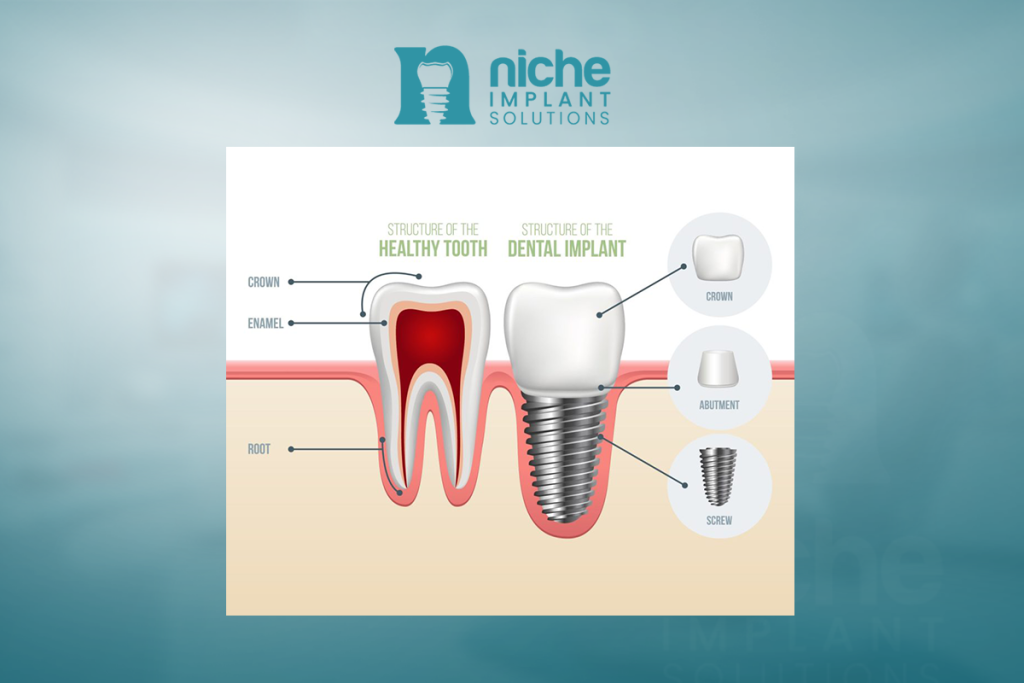
Niche Dental Solutions: Pioneering Excellence in Long-Lasting Dental implant durability
Niche Dental Solutions utilizes cutting-edge materials like high-grade titanium and zirconia, known for their superior biocompatibility and strength. Their implants are engineered to withstand the stresses of daily use while ensuring optimal integration with the jawbone. This focus on high-quality materials contributes to the implants’ impressive durability and longevity.
Innovative Implant Design
The company’s implants feature state-of-the-art designs that enhance stability and osseointegration. Their implants are meticulously crafted with advanced surface treatments that promote stronger bone bonding and minimize the risk of implant failure. These innovations help ensure that Niche Dental Solutions’ implants perform reliably over the long term.
Rigorous Testing and Quality Control
Niche Dental Solutions places a strong emphasis on rigorous testing and quality control throughout the manufacturing process. Each implant undergoes extensive testing to meet or exceed industry standards, ensuring that only the highest quality products reach the market. Their dedication to maintaining strict quality control measures translates into implants that offer superior durability and performance.
Comprehensive Patient and Professional Support Proper placement and aftercare. They provide comprehensive support to both dental professionals and patients, including:
Patient Resources
Niche Dental Solutions also provides valuable resources and support to patients, including detailed information on implant care and maintenance. This focus on patient education helps individuals make informed decisions and maintain their implants effectively.
Commitment to Innovation and Excellence
The company’s commitment to ongoing research and innovation ensures that they remain at the cutting edge of dental implant technology. By continually refining their products and practices, Niche Dental Solutions is dedicated to providing implants that not only meet but exceed the expectations for durability and performance.
When it comes to dental implant durability, Niche Dental Solutions stands out as the industry leader. Their advanced materials, innovative designs, rigorous quality control, and comprehensive support make them the top choice for patients and professionals seeking reliable and long-lasting implant solutions. By choosing Niche Dental Solutions, you are opting for a company that prioritizes durability, quality, and excellence in every aspect of dental implant technology.
Contact Niche Dental Now, Experience the Difference!!

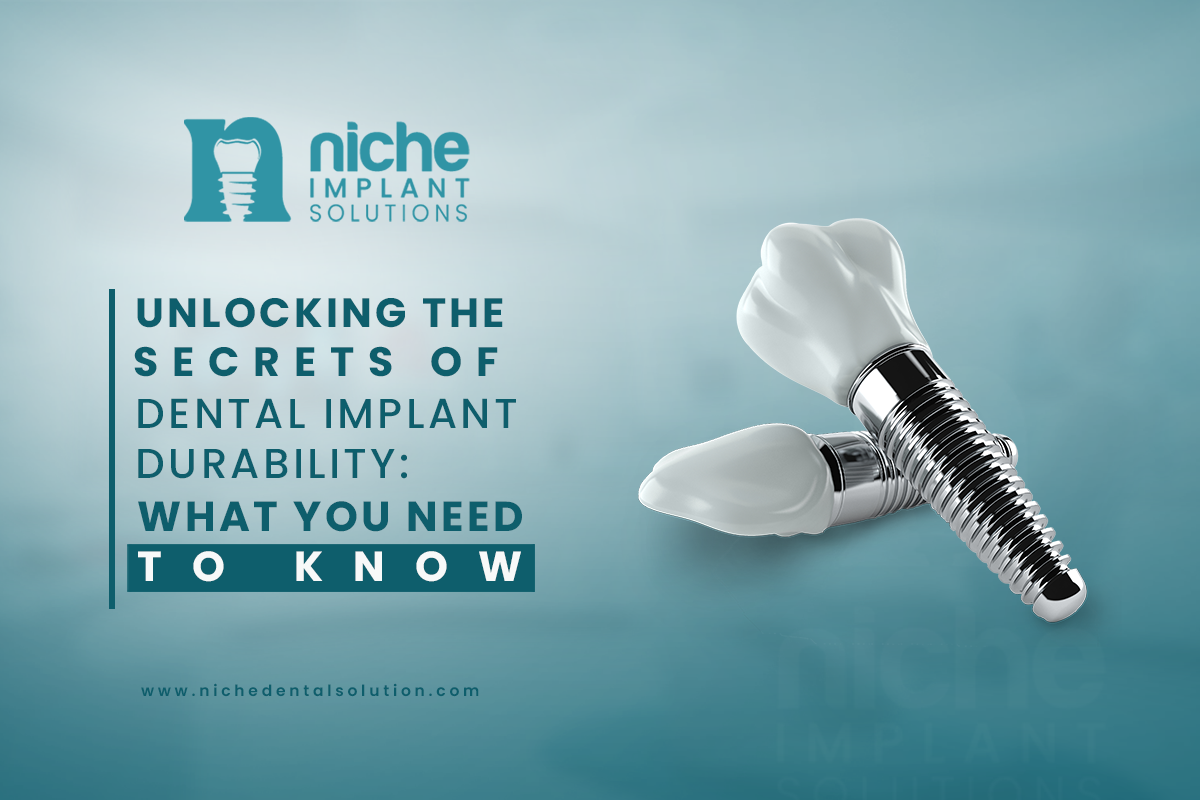
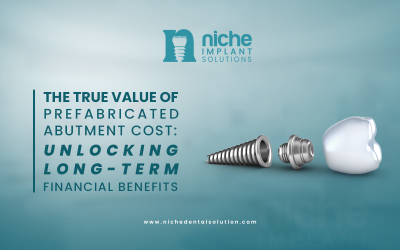
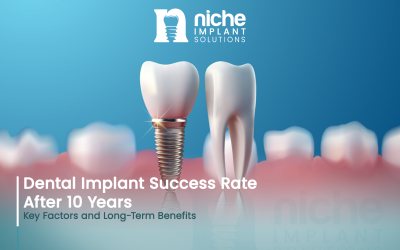

0 Comments